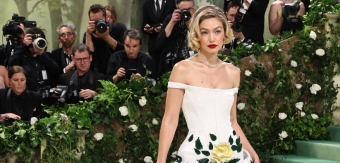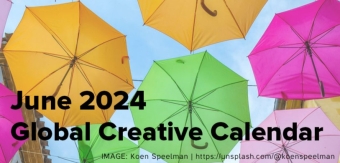Controversy can be a double-edged sword, particularly in an age where there’s so much content and so few original ways left to break through the noise. Poking the bear is all well and good though, but if you poke too hard, you’ll eventually find yourself without a head. This is something advertisers have been discovering to their peril in recent months, as ASA regulations tighten, and audiences begin to demand more transparency from their brands.
This has cultivated a culture where brands and agencies regularly find themselves hot water over their ad campaigns. Whether it's due to wild unsubstantiated claims, inadvertently supporting harmful stereotypes, or marketing age-restricted products inappropriately, there are many reasons an ad might be pulled from the airwaves. But can that ban lend it an air of notoriety that actually helps the cause in the long run?
Think of the “video nasties” ban in the 80s and how it made legends out of films that probably would have sunk without a trace otherwise. More recently, ask yourself how many times you’ve clicked on a video because somebody told you that you shouldn’t? We’re inquisitive creatures by nature and it can be almost impossible to ignore the clarion call of temptation when somebody says “no”, but we know there will be few (if any) repercussions for ploughing ahead. Look at the notorious Apple Crush ad from last week for proof.
Is a ban really such a bad thing?
In the UK, all ads are regulated by the ASA (Advertising Standards Authority). They enforce the UK's Advertising Codes, written by the Committees of Advertising Practice (CAP). These codes include the BCAP Code (Broadcast Advertising) and the CAP Code (Non-Broadcast Advertising), establishing rules for advertisers, agencies, and media owners. The ASA and CAP work to ensure that adverts conform to these standards. But does a ban necessarily mean the ad disappears into the ether?
Recently Dominic West’s Nationwide advert was banned for TV broadcast for making false claims about how many physical store closures the brand had made. Personally, I’d only heard about the ad in the wake of these claims and sought it out almost immediately. I never would have seen it otherwise (I seldom watch live TV) and I thought it was a pretty nifty piece of work, banned or not. In a world where more of us are turning to our phones for entertainment and turning off the tele in droves, could a ban be a bold new marketing tactic?
Since the start of the year, it’s just one of fourteen adverts across different media platforms that have been banned for various reasons. So, I thought I’d take a look at a few of them and see if they were really worth kicking up such a fuss over. Join me, won’t you?
Mous' Phone Case Advert
Mous, a phone case manufacturer, faced criticism for their TV advert showing 50 people throwing their phones (in Mous cases) into the air and finding them undamaged. A viewer complained that the advert exaggerated the protective performance of the cases, as their phone was damaged despite using a Mous case.
Mous claimed the advert was based on real test data from over 50 drop tests. However, the ASA found that the advert depicted higher drops than the tests and didn't test all phone features. Consequently, the advert was banned for exaggeration.
LeoVegas' BetUK Advert
In a radio advert for online sports bookmaker BetUK, retired footballer Adebayo Akinfenwa claimed to be a brand ambassador. A complaint suggested that the advert inappropriately promoted gambling, as Akinfenwa was likely to appeal to those under 18.

BetUK argued that Akinfenwa's career in Leagues One and Two made him less appealing to younger audiences. However, the ASA found that his status as a cult hero, stemming from his FIFA video game ranking and Amazon Prime documentary, made him popular among teenagers. An analysis revealed that 157,000 of his social media followers were under 18, leading the ASA to ban the advert.
Nationwide’s Branch Promise Advert
We’ve already mentioned this one but it’s easily one of the most high-profile ad bans of the year. The ad depicted a fictional rival bank closing branches to cut costs, claiming, "Unlike the big banks, we’re not closing our branches."
This claim led to 228 complaints from customers who had experienced Nationwide branch closures. Nationwide argued the advert aligned with their 'Branch Promise' not to close branches until 2026. However, the ASA found the advert misleading, as Nationwide had closed branches in the past decade and implied a longer-term commitment than their promise. The campaign was subsequently pulled.
Greater London Authority’s ULEZ Advert
A radio ad promoting the expansion of London’s Ultra Low Emissions Zone (ULEZ) claimed, "one of the most polluted places in London is inside your car." This statement prompted numerous complaints.

The ASA reviewed evidence from ten reports, The Guardian, King’s College London, and the Chief Medical Officer’s report. While the data confirmed car users' exposure to pollution, it didn't establish that car interiors are among the most polluted places in London. As a result, the ad was banned for making unsubstantiated claims.
JML Hurricane Spin Scrubber Advert
John Mills Ltd.'s TV advert for the Hurricane Spin Scrubber was banned for perpetuating harmful gender stereotypes. The advert featured women using the cleaning tool at home, with a male host and female assistant demonstrating the product.
Joint CAP and BCAP guidance allows gender-stereotypical roles but advises against implying these roles are exclusive to one gender. The male host's authoritative role and lack of involvement in using the product reinforced the stereotype that cleaning is women's work, leading to the ad's removal.
Courting controversy
Ultimately, there is nothing groudbreakingly controversial to be found in any of these ads, so what’s the takeaway here? It appears to be that, aside from getting your ad banned these days isn’t about offending people but about lying to them. So, if you want to steer clear of the censors in 2024. Do you research and no bullshitting!




